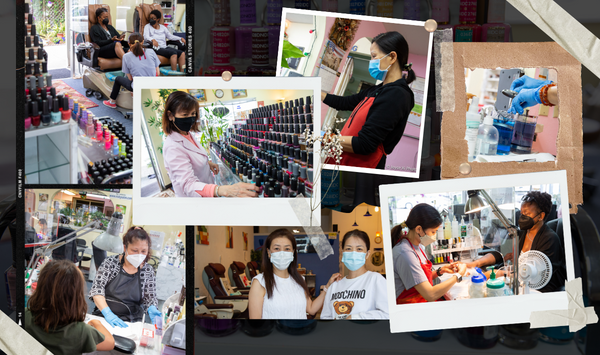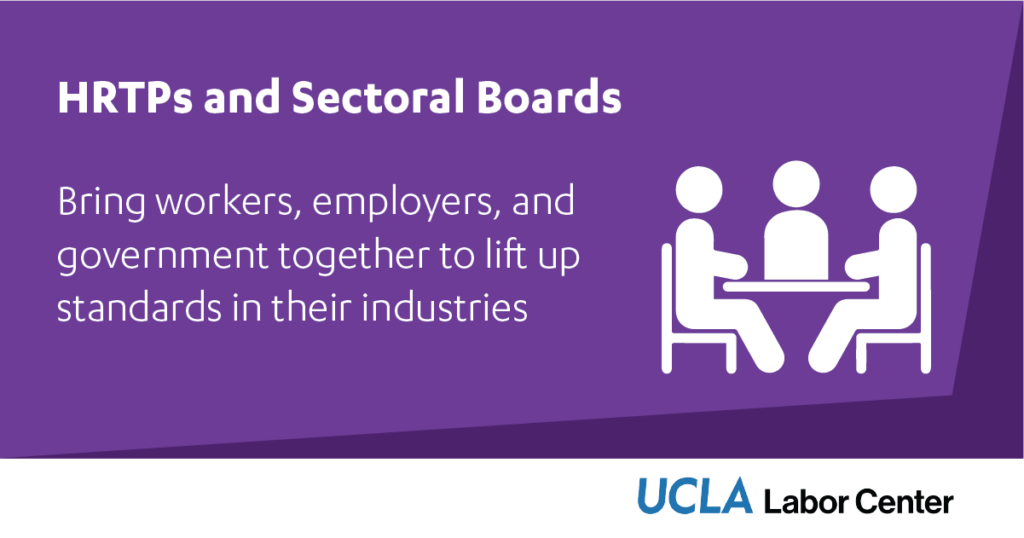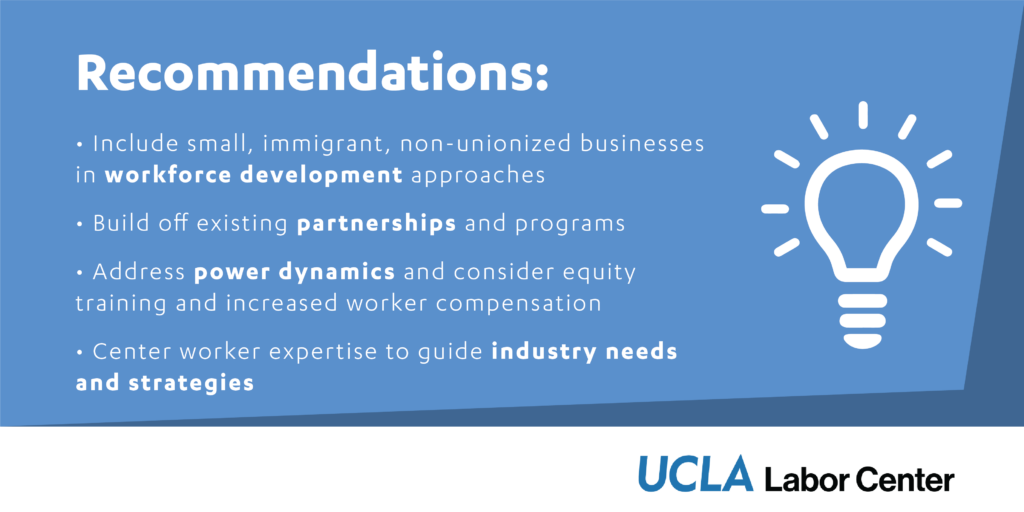
A new report released by the UCLA Labor Center and the California Healthy Nail Salon Collaborative explores two approaches, High Road Training Partnerships (HRTPs) and sectoral boards, to addressing workplace conditions, job quality, and climate resilience in sectors where unionization and/or industry-wide changes are difficult.
Through four in-depth interviews with expert community and union partners who have implemented these models, “Nailing New Labor Models: Exploring Sectoral Boards and High Road Training Partnerships in the Nail Salon Sector” considers the opportunities and challenges in implementing these models for nail salon worker organizing and advocacy. The report’s authors further assess these models’ applicability and feasibility for the nail salon sector through four focus groups with nail salon workers and owners in California and Massachusetts.
The report also functions as a “how to” for nail salon worker advocacy organizations: it examines pathways forward and prior lessons learned in order to develop partnerships among high road employers, worker organizations, and other industry stakeholders. Ultimately, this report weighs what partnerships and/or sectoral boards can be forged to build a sustainable and equitable nail salon industry.
Among other findings, the report notes that HRTPs have inclusive leadership, are worker-centered, and advance equity and job quality. In focus groups, workers and owners provided feedback on the need to identify industry leadership, form a partnership with multiple stakeholders, and create workforce development programs and promoting industry growth.

Additionally, the report finds that wage boards and labor boards bring together a range of representatives, can engage the broader community, and can promote consensus building. In focus groups, workers and owners provided feedback on the need to focus committee work to change industry issues, form a committee or council, and be attentive to concerns about power dynamics.
The report’s authors recommendations include, but are not limited to: supporting workers and the nail salon workforce through training programs and pathways for workers to increase workplace and life skills and provide opportunities for wage increases; developing high-road nail salon businesses by creating training programs on how salon owners can develop high road infrastructure; and continuing research for HRTPs to better understand how a model could be deployed for organizations that are not a union and for an industry without large companies or chains.

The report was authored by Preeti Sharma and Jennifer Nguyen of California State University, Long Beach; Julci Areza and Lisa Fu of the California Healthy Nail Salon Collaborative; and Ana Luz Gonzalez-Vasquez, Lucero Herrera, Magaly N. Lopez, and Saba Waheed of the UCLA Labor Center.


